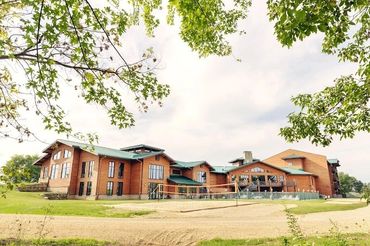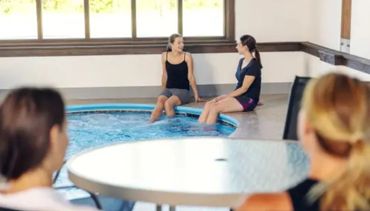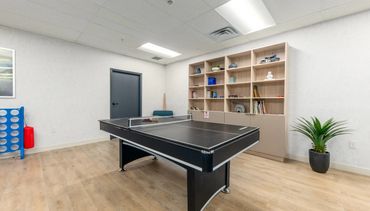
Wisconsin Inpatient and Outpatient Rehab Centers Near Me for Drug and Alcohol Addiction
If you are struggling with drug or alcohol misuse, getting support in the form of addiction treatment can be a brave step toward a healthier lifestyle. Top drug and alcohol rehab centers in Wisconsin offer treatment programs to help you get started in recovery.
If you are ready to get treatment but not sure where to begin, browse the ratings and review below. These reviews for rehab centers in Wisconsin will help you understand more about inpatient and outpatient care, detox centers, and the various services each type of program offers.
Addiction treatment centers in Wisconsin
Open to Travel? Check out Top-Rated Options
All Addiction treatment centers in Wisconsin
Are You Covered For Treatment?
- Milwaukee Rehabs
- Madison Rehabs
- Green Bay Rehabs
- Waukesha Rehabs
- La Crosse Rehabs
- Kenosha Rehabs
- Appleton Rehabs
- Eau Claire Rehabs
- Oconomowoc Rehabs
- Chippewa Falls Rehabs
Rehab Insurance Coverage in Wisconsin
Rehab Centers in Wisconsin
Information About Rehab in Wisconsin
Latest Reviews
Latest Reviews of Rehabs in Wisconsin
L.E. Phillips Libertas Treatment Center
Very individual focused. Caring & supportive. They have people from the outside bring in meetings. Also, take their clients to outside recovery events.
Waukesha Comprehensive Treatment Center
Program, location were good but Not covered by many insurance companies Standard methadone maintenance program
Libertas Treatment Center
Profesional information, program for adolescent. Provides treatment efective to relieve the pain and suffering
Drug Addiction in Wisconsin
Wisconsin has troublesome rates of drug and alcohol use and addiction. Alcohol was a factor in at least 2,008 deaths in 2015. Further, Wisconsin residents are susceptible to abusing alcohol and opioids, particularly narcotic pain medications. Research shows that emergency department visits related to narcotic pain relievers increased 117% between 2005 and 2011.1
In 2014 there were 14,710 drug-related hospitalizations in Wisconsin resulting from overdose, substance-related psychosis and other associated medical conditions.1
There are a variety of substance abuse rehabilitation programs throughout the state that treat a number of different populations while providing several types of payment options for people with and without insurance.
Addiction by the Numbers
- Past-month alcohol use among those age 12 and older and among those age 12-20 were both higher than the national average in 2014-2015 (60.36% and 23.86%, respectively).4
- In 2013, 15% of Wisconsin high school students reported use of prescription drugs for nonmedical reasons at some point in their lives.1
- Only 33.3% of all Wisconsin adolescents who experienced a major depressive episode within the past year received treatment, on average, from 2011-2015.2
- Only 45.2% of all Wisconsin adults with any mental illness reported receiving mental health services within the past year from 2011-2015.2
- In a single-day count, 24,371 Wisconsin residents were enrolled in substance use treatment in 2015. Almost 22% were receiving treatment for an alcohol problem, 35.1% were receiving treatment for a drug problem, and 43.2% were receiving treatment for both drug and alcohol problems.2
How Much Does Rehab Cost?
The cost of rehabs in WI will be determined by factors like duration of stay, amenities and type of program. For example, if you choose a private, luxury or executive program, the cost is likely to be higher. It may take some effort to determine an appropriate plan to cover the cost, but there are ways for you to do so. Many rehabs take insurance, offer financing, and utilize sliding scales. You may also look into healthcare credit cards or loans to offset the burden of paying the full cost upfront.
You have a lot to lose by continuing to live in active addiction—don’t let the financial cost let you forget the personal cost of not getting the help you need.
Treatment Options
In 2015, Wisconsin had 288 treatment facilities. Types of programs vary from inpatient or outpatient treatment to detoxification, short-term 28-or 30-day rehab, long-term 60-day or 90-day residential treatment and hospitalization. Wisconsin has treatment centers that focus on specialty populations, including clients with co-occurring disorders, LGBT clients, pregnant women or new mothers, clients with HIV/AIDS and young adults and adolescents.3
Most treatment centers in Wisconsin offer several payment options for care, with 83% of facilities accepting Medicaid, 57% accepting Medicare, 45% offering sliding scale fees, and 87% accepting private insurance.3
Using Insurance to Pay for Rehab Treatment
Learn more about insurance providers:
Local Resources for Recovering Addicts
- Wisconsin Behavioral Health Services. This resource assists Wisconsin residents struggling with mental health illness and substance use with treatment placement, recovery, and community services.
- National Alliance on Mental Health (NAMI) Wisconsin. The NAMI chapter in Wisconsin offers education, support, program information, and advice on how to navigate the mental healthcare system.
- Wisconsin Medicaid. Medicaid is health insurance for Wisconsin residents who are low income and lack coverage. Some recovery programs accept Medicaid as payment for services.
- Alcoholics Anonymous in Southern Wisconsin and Alcoholics Anonymous in Northern Wisconsin offer free recovery meetings for people who want to get sober.
- Wisconsin Narcotics Anonymous. Wisconsin Narcotics Anonymous (NA) is a fellowship of men and women who are in recovery and help each other stay clean.
Sources
- Substance Abuse and Mental Health Services Administration. (2016). Wisconsin Epidemiological Profile on Alcohol and Other Drugs, 2016.
- Substance Abuse and Mental Health Services Administration. (2015). Behavioral Health Barometer: Wisconsin, Volume 4.
- Substance Abuse and Mental Health Services Administration. (2015). N-SSATS Profile—Wisconsin 2015.



















